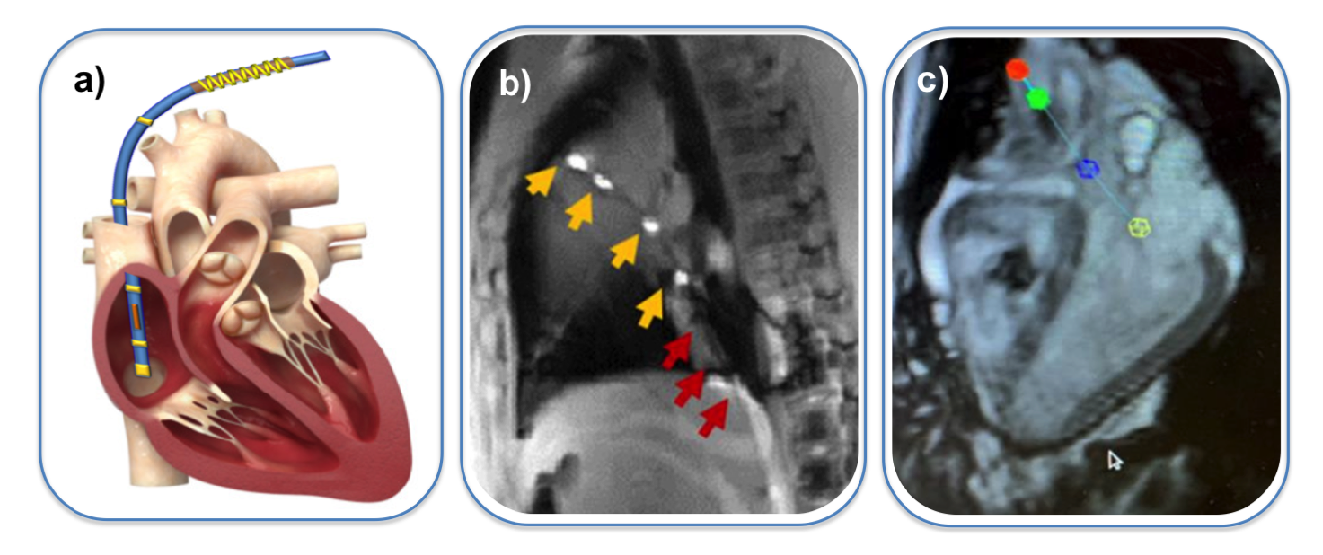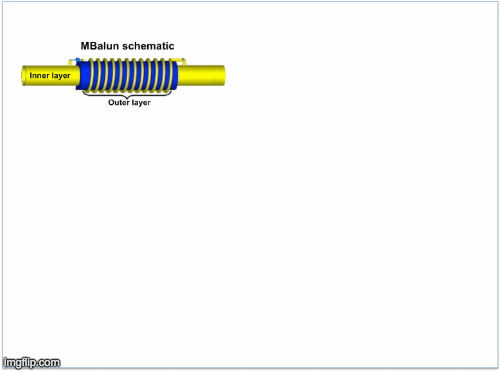
Cardiovascular interventional devices typically have long metallic braids or backbones to aid in steerability and pushability. However, electromagnetic coupling of metallic-based cardiovascular interventional devices with the radiofrequency (RF) fields present during Magnetic Resonance Imaging (MRI) can make a device unsafe for use in an MRI scanner. We aimed to develop MRI conditional actively-tracked cardiovascular interventional devices by sufficiently attenuating induced currents on the metallic braid/tube and internal-cabling using miniaturized resonant floating RF traps (MBaluns). Method: MBaluns were designed for placement at multiple locations along a conducting cardiovascular device to prevent the establishment of standing waves and to dissipate RF-induced energy. The MBaluns were constructed with loosely-wound solenoids to be sensitive to transverse magnetic fields created by both surface currents on the device’s metallic backbone and common-mode currents on internal cables. Electromagnetic simulations were used to optimize MBalun parameters. Following optimization, two different MBalun designs were applied to MR-actively-tracked metallic guidewires and metallic-braided electrophysiology ablation catheters. Control-devices were constructed without MBaluns. MBalun performance was validated using network-analyzer quantification of current attenuation, electromagnetic Specific-Absorption-Rate (SAR) analysis, thermal tests during high SAR pulse sequences, and MRI-guided cardiovascular navigation in swine. Results: Electromagnetic SAR simulations resulted in ≈ 20 dB attenuation at the tip of the wire using six successive MBaluns. Network-analyzer tests confirmed ~17dB/MBalun surface-current attenuation. Thermal tests indicated temperature decreases of 5.9 °C in the MBalun-equipped guidewire tip. Both devices allowed rapid vascular navigation resulting from good torquability and MR-Tracking visibility. Conclusion: MBaluns increased device diameter by 20%, relative to conventional devices, providing a spatially-efficient means to prevent heating during MRI. Significance: MBaluns allow use of long metallic components, which improves mechanical performance in active MR-guided interventional devices.

